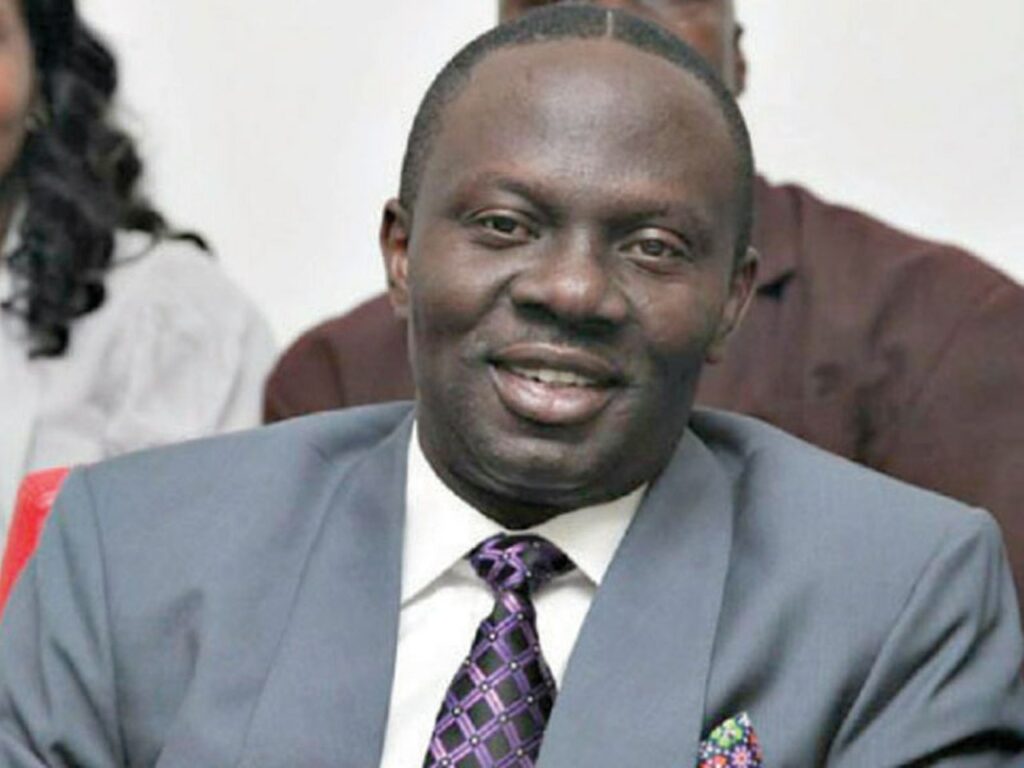It has been 48 years since Major Chukwuma Kaduna Nzeogwu cited corruption and the corrupt – the ten per centers – as the principal reason he and his fellow young majors introduced violence into our national politics and changed its architecture forever.
It has been 40 years since General Yakubu listed the eradication of corruption among his nine-point programme he intended to accomplish before handing over a sparkling new nation to his political counterparts in agbada in 1976.
It has been 39 years since General Murtala Ramat Muhammed, determined on a frontal confrontation with corruption, began his national house cleaning with the probe of Gowon’s former military governors that resulted in the findings that gave him no option but to dismiss nine of them from the armed forces and the police “with ignominy.”
It has been 11 years since President Olusegun Obasanjo set up the Economic and Financial Crimes Commission, EFCC, to wage a systematic and relentless war against corruption.
It has been a long war. It has been a fruitless war. So, why would we bother about the ‘C’ word any more? The pin is stuck in the groove, right? In one of our interviews with President Obasanjo, I asked him why he was obsessed with fighting corruption. He said corruption was the real problem of Nigeria. If, he said, he did not tackle corruption, nothing would work and the country would only make cosmetic rather than substantial progress. You don’t need toothcomb to see the evidence of our cosmetic progress.
I offer it as a one good reason for this column. The damage corruption has done to us and our country is much deeper than most people care to know. Even the blind can see that. Corruption thrives because of our cynical attitudes towards its eradication. Even the blind can see that too.
Impunity, the special social, political, economic and even legal privilege enjoyed by the privileged among us, the big men and women, the movers and shakers, in our country, has made corruption a protected crime and the corrupt a protected and important personage. I refer you to Professor Wole Soyinka’s essay, The Wages of Impunity, widely published in Nigerian newspapers and online media last week for the extent to which this country and its people are reaping the wages of impunity. The combined weight of corruption and impunity threatens to sink the ship of state. We do not appear to notice because the ship is doing its best to stay afloat on the choppy waters of a nation that has problems with spelling the word corruption.
The problem is not that every year Transparency International lists Nigeria closely behind Bangladesh in its annual index of corrupt countries. No country, even one as nearly corruption free as Switzerland or Singapore, is free of corruption. The level of corruption, like age, is a matter of numbers. The problem with our country’s anti-corruption war is that it is steeped in cynicism. Only last week, after 11 years of its supposedly doing battle with corruption, the EFCC chairman, Ibrahim Lamorde, was reported to be lamenting the “overwhelming corruption” in the country, particularly at the state level where its main features remain the same all these years: inflated contracts, over-invoicing, embezzlement and outright payment of money to political godfathers.
His threat to deal with corruption made me tear up. I thought that was why he is chairman of EFCC, the only statutory body with the legal mandate to fight corruption and the corrupt in the country. If, at this point, he is reduced to helplessly lamenting the overwhelming corruption, I fear something must have gone badly wrong with both the war and its prosecution. Indeed, it has. That is the point of this column.
Here is the contrast between the anti-corruption war in Nigeria and that in China. Last July, Li Hahua, 56, former deputy mayor and chairman of the City’s Peoples Congress, committed suicide. He was one of 30 officials in the country who had killed themselves this year alone when they found anti-corruption investigators closing in on them.
President Xi Jinping began his anti-corruption war in 2013. The high suicide rate among those being investigated on allegations of corruption tells me that he is prosecuting the war in a manner that achieves results. There are no sacred cows and bulls. The Chinese see corruption not just as a personal shame but also more importantly as a family disgrace. The corrupt does not just impugn his own integrity he also destroys the integrity of his family. In a culture that respects the integrity of the individual as a family pride, those who choose to commit suicide want to save their families the shame and the ordeal of their trial during which they are forced to confront unsightly worms wriggling in opened cans.
Here, stealing and corruption are sources of family, clan and tribal pride. Ever heard of a Nigerian community or tribe distancing itself from its member accused of dipping his hands in the public till and freely helping himself? No. Once the charge is laid at his or her feet, his or her clan and tribe rise up in his or her defence. I am willing to bet that no Nigerian would be foolish enough to wait for the day he would see a Nigerian being seriously investigated on allegations of corrupt practices jumping before a moving vehicle to protect the honour of his family. Suicide may not be an answer but I argue for family honour and pride. A man who fails to live up to the integrity of his high public office disgraces not just himself and his family but also dishonours us.
No nation can successfully wage a war against corruption when it exhibits such a blatant ambivalence towards the war. We condemn and at the same time celebrate those who make themselves wealthier and make our country and us poorer indeed. In contrast, the Chinese condemn and even shoot the guilty. Our anti-corruption war, such as it is, is going nowhere because there is not even a national agreement on what constitutes corruption. President Goodluck Jonathan is actually the chief prosecutor of the anti-corruption war. Lamorde is only his staff officer. The president believes that corruption in the country is exaggerated. He also believes that what people are doing to our common wealth is not corruption but stealing.
Herein lies the real wahala. Presidents do not bother themselves with stealing and fighting those who steal. That is the job of the police. Corruption is more an intractable problem because there are two critical parts to it. One part is outright stealing – embezzlement, over-invoicing, misappropriation, etc. The second and perhaps the more dangerous part is that corruption is an axe at root of morality. An anti-corruption war that ignores the moral dimensions of the problem cannot but be the joke that ours has been for 48 years now. I think this is what the president fails to sufficiently appreciate.
Come to think of it: the founders of the largest party in Africa, the PDP, were wise men. They chose the umbrella as the symbol of the party. The umbrella offers protection from the rain and the sun. Now, it offers full protection to all those who are alleged to have driven the stake through the heart of our morality. The PDP national chairman? Check. Minister Boni Haruna? Check. Incoming Ekiti State governor, Ayo Fayose? Check.
Yes, these men are facing allegations of corruption before EFCC. They have not been tried, let alone found guilty of the EFCC charges against them. Technically, they have no stain on their immaculate baban riga. The argument misses the point. It is crass legalism. Moral integrity is not about law or judicial pronouncements. It is about personal honour. In countries that place premium on personal honour and integrity, a man with a question mark on his integrity needs to clear himself before he can be entitled to public privileges such as being allowed to hold an important public office.
Well, we can be excused because we place no premium on personal honour and integrity. The constant flood of men and women from other parties into PDP should tell you something. Only the party has the umbrella to protect all those who need to be protected. Still, my take is that turning the umbrella into total protective cover for those in a tussle with the EFCC is the most glaring evidence that the anti-corruption war is cynical, dishonest and a disgrace to whatever we hold dear as a nation and as a people
The Umbrella Protection ,By Dan Agbese
Follow Us On WhatsApp



